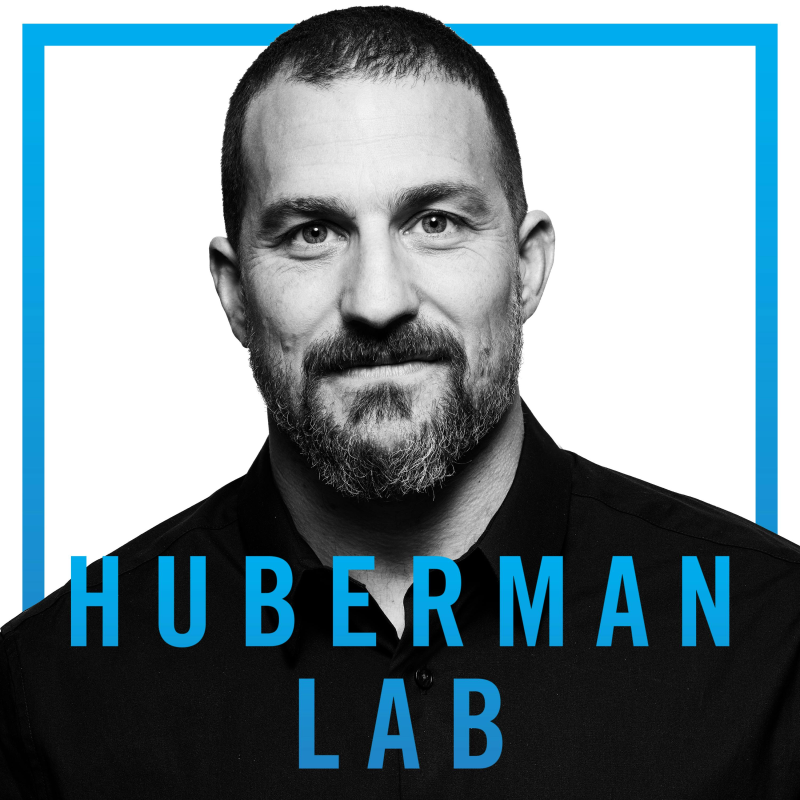
The Biology of Social Interactions and Emotions | Dr. Kay Tye

O epizodě podcastu
In this episode, my guest is Dr. Kay Tye, PhD, Professor of Systems Neurobiology at the Salk Institute for Biological Studies and a Howard Hughes Medical Institute (HHMI) Investigator. We discuss the neural circuit basis of social interactions and loneliness. We also discuss how animals and people establish themselves in a group hierarchy by rank and how the brain responds to dominance and subordination.
Much of our discussion relates to how social media impacts our sense of social connectedness or lack thereof. The topics covered in this episode are directly relevant to anyone interested in the neuroscience of mental health, work-life balance, abundance versus scarcity mindset, and interpersonal dynamics.
For show notes, including referenced articles and additional resources, please visit hubermanlab.com.
Thank you to our sponsors
AG1: https://drinkag1.com/huberman
Eight Sleep: https://www.eightsleep.com/huberman
Levels: https://levels.link/huberman
LMNT: https://drinklmnt.com/huberman
InsideTracker: https://insidetracker.com/huberman
Momentous: https://livemomentous.com/huberman
Timestamps
(00:00:00) Dr. Kay Tye
(00:02:39) Sponsors: Eight Sleep, Levels & LMNT
(00:06:40) Amygdala; “Valence”
(00:12:43) Novelty; Reward & Punishment Response
(00:20:06) Amygdala & Hunger; Social Interaction
(00:26:21) Social Media & Social Connection; Tool: Email & Time Management
(00:35:03) Sponsor: AG1
(00:36:30) Social Media; Friction & Feedback, Leadership
(00:43:44) Social Isolation, Harlow Experiments, “Loneliness Neurons”
(00:51:47) Social Homeostasis, COVID-19 Pandemic & Loneliness
(01:01:29) Quality of Social Contact, Social Homeostasis, Social Media
(01:08:40) Sponsor: InsideTracker
(01:09:42) Social Media, Relationships; Social Isolation & Exclusion
(01:18:26) Empathy: Friend vs. Foe
(01:28:40) Background & Empathy, Diversity, Emotional Regulation
(01:34:34) Abundance vs. Scarcity Mindset
(01:37:22) Social Rank & Hierarchy, Sibling Order, Development
(01:45:54) Dynamic Hierarchy; Dominants vs. Subordinates; Mentors
(01:55:32) Psychedelics: Research & Mechanisms; Psilocybin
(02:06:28) Work-Life Balance, Fitness & Extracurriculars
(02:11:56) Personal Life, Diversity, Happiness; Typical Day
(02:15:42) Science & Academia; Future Directions
(02:23:48) Research & Science Outreach
(02:28:48) Zero-Cost Support, Spotify & Apple Reviews, YouTube Feedback, Sponsors, Momentous, Social Media, Neural Network Newsletter
Disclaimer
In this episode, my guest is Dr. Kay Tye, Ph.D., Professor of Systems Neurobiology at the Salk Institute for Biological Studies and a Howard Hughes Medical Institute (HHMI) Investigator. We discuss the neural circuit basis of social interactions and loneliness. We also discuss how animals and people establish themselves in a group hierarchy by rank and how the brain responds to dominance and subordination.
Much of our discussion relates to how social media impacts our sense of social connectedness or lack thereof. The topics covered in this episode are directly relevant to anyone interested in the neuroscience of mental health, work-life balance, abundance versus scarcity mindset, and interpersonal dynamics.
Read the full show notes for this episode at hubermanlab.com.
Thank you to our sponsors
AG1: https://drinkag1.com/huberman
LMNT: https://drinklmnt.com/hubermanlab
Timestamps
00:00:00 Dr. Kay Tye
00:02:56 Sponsors: LMNT
00:06:40 Amygdala; “Valence”
00:12:43 Novelty; Reward & Punishment Response
00:20:06 Amygdala & Hunger; Social Interaction
00:26:21 Social Media & Social Connection; Tool: Email & Time Management
00:31:21 Sponsor: AG1
00:36:30 Social Media; Friction & Feedback, Leadership
00:43:44 Social Isolation, Harlow Experiments, “Loneliness Neurons”
00:51:47 Social Homeostasis, COVID-19 Pandemic & Loneliness
01:01:29 Quality of Social Contact, Social Homeostasis, Social Media
01:09:42 Social Media, Relationships; Social Isolation & Exclusion
01:18:26 Empathy: Friend vs. Foe
01:28:40 Background & Empathy, Diversity, Emotional Regulation
01:34:34 Abundance vs. Scarcity Mindset
01:37:22 Social Rank & Hierarchy, Sibling Order, Development
01:45:54 Dynamic Hierarchy; Dominants vs. Subordinates; Mentors
01:55:32 Psychedelics: Research & Mechanisms; Psilocybin
02:06:28 Work-Life Balance, Fitness & Extracurriculars
02:11:56 Personal Life, Diversity, Happiness; Typical Day
02:15:42 Science & Academia; Future Directions
02:23:48 Research & Science Outreach
02:28:48 Zero-Cost Support, Spotify & Apple Reviews, YouTube Feedback, Sponsors, Momentous, Social Media, Neural Network Newsletter
Disclaimer & Disclosures
Learn more about your ad choices. Visit megaphone.fm/adchoices
Popis podcastu
The Huberman Lab podcast is hosted by Andrew Huberman, Ph.D., a neuroscientist and tenured professor in the department of neurobiology, and by courtesy, psychiatry and behavioral sciences at Stanford School of Medicine. The podcast discusses neuroscience and science-based tools, including how our brain and its connections with the organs of our body control our perceptions, our behaviors, and our health, as well as existing and emerging tools for measuring and changing how our nervous system works.
Huberman has made numerous significant contributions to the fields of brain development, brain function, and neural plasticity, which is the ability of our nervous system to rewire and learn new behaviors, skills, and cognitive functioning. He is a McKnight Foundation and Pew Foundation Fellow and was awarded the Cogan Award, given to the scientist making the most significant discoveries in the study of vision, in 2017.
Work from the Huberman Laboratory at Stanford School of Medicine has been published in top journals, including Nature, Science, and Cell, and has been featured in TIME, BBC, Scientific American, Discover, and other top media outlets.
In 2021, Dr. Huberman launched the Huberman Lab podcast. The podcast is frequently ranked in the top 10 of all podcasts globally and is often ranked #1 in the categories of Science, Education, and Health & Fitness.